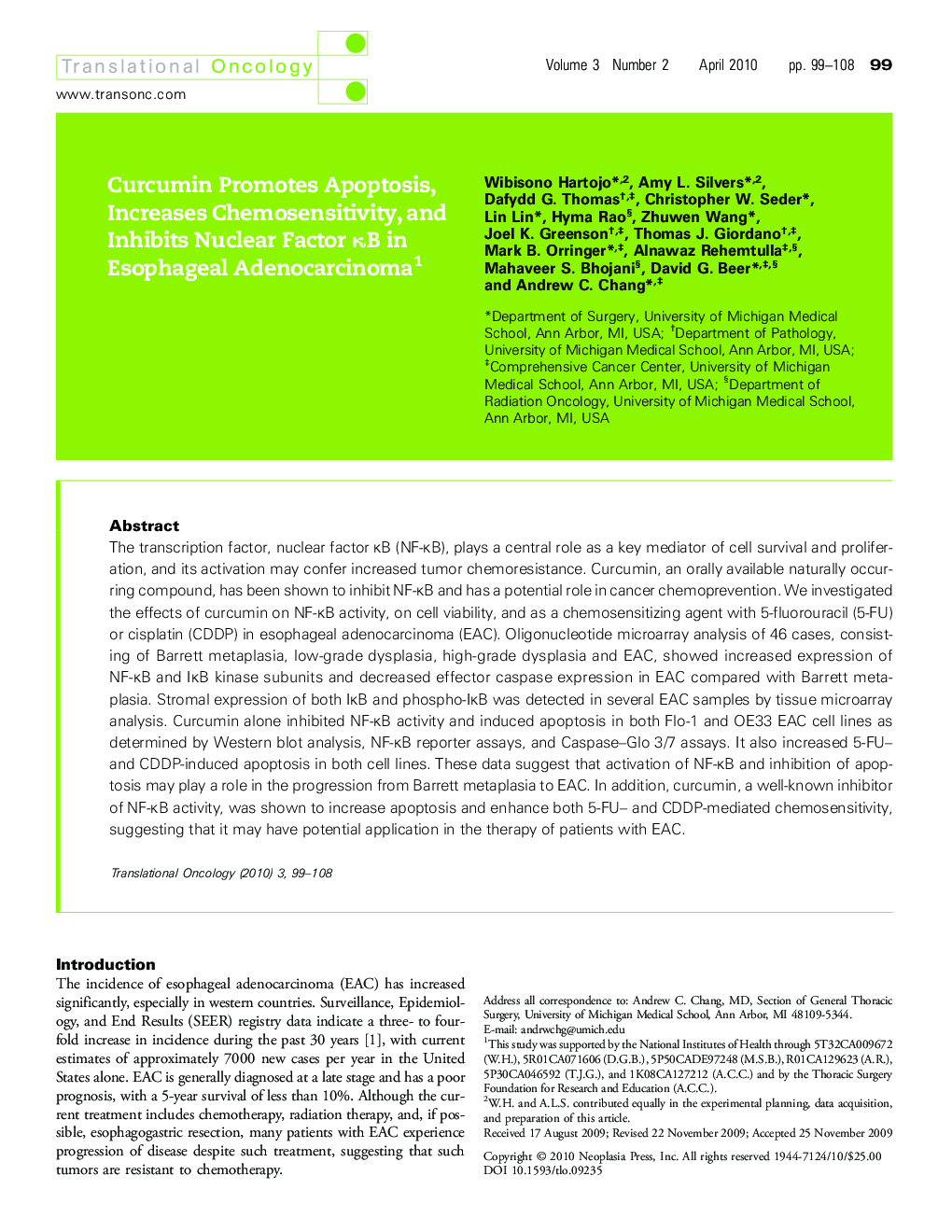| Article ID | Journal | Published Year | Pages | File Type |
|---|---|---|---|---|
| 2163820 | Translational Oncology | 2010 | 10 Pages |
The transcription factor, nuclear factor κB (NF-κB), plays a central role as a key mediator of cell survival and proliferation, and its activation may confer increased tumor chemoresistance. Curcumin, an orally available naturally occurring compound, has been shown to inhibit NF-κB and has a potential role in cancer chemoprevention. We investigated the effects of curcumin on NF-κB activity, on cell viability, and as a chemosensitizing agent with 5-fluorouracil (5-FU) or cisplatin (CDDP) in esophageal adenocarcinoma (EAC). Oligonucleotide microarray analysis of 46 cases, consisting of Barrett metaplasia, low-grade dysplasia, high-grade dysplasia and EAC, showed increased expression of NF-κB and IκB kinase subunits and decreased effector caspase expression in EAC compared with Barrett metaplasia. Stromal expression of both IκB and phospho-IκB was detected in several EAC samples by tissue microarray analysis. Curcumin alone inhibited NF-κB activity and induced apoptosis in both Flo-1 and OE33 EAC cell lines as determined by Western blot analysis, NF-κB reporter assays, and Caspase-Glo 3/7 assays. It also increased 5-FU- and CDDP-induced apoptosis in both cell lines. These data suggest that activation of NF-κB and inhibition of apoptosis may play a role in the progression from Barrett metaplasia to EAC. In addition, curcumin, a well-known inhibitor of NF-κB activity, was shown to increase apoptosis and enhance both 5-FU- and CDDP-mediated chemosensitivity, suggesting that it may have potential application in the therapy of patients with EAC.
